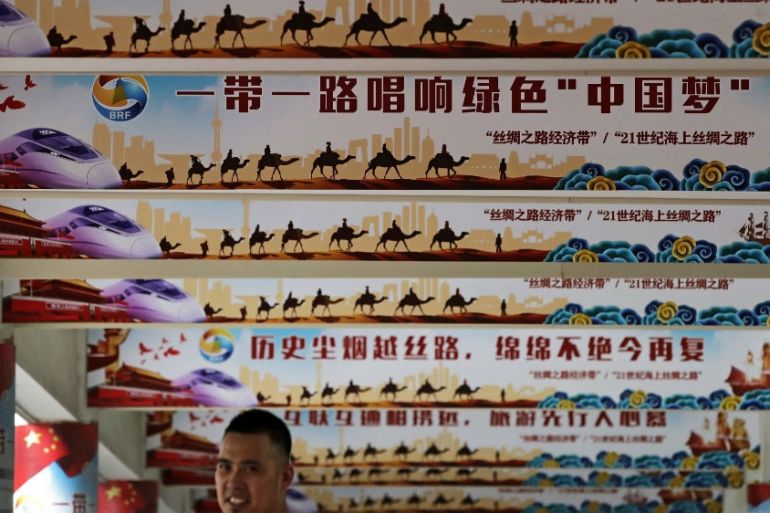Southeast Asia wary on China, Belt and Road initiative: Survey
Survey by Singapore-based think-tank shows Southeast Asia concerned US commitment waning as China ambitions grow.

Southeast Asian countries are cautious about China‘s rise and its flagship Belt and Road Initiative (BRI), according to a new policy survey.
The survey, which was released on Monday by the Singapore-based ISEAS-Yusof Ishak Institute, polled 1,008 respondents from all 10 member states of the Association of Southeast Asian Nations (ASEAN), including people in government, academic and business communities, civil society and the media.
Keep reading
list of 4 itemsUS imposes new sanctions on Iran after attack on Israel
A flash flood and a quiet sale highlight India’s Sikkim’s hydro problems
Why is Germany maintaining economic ties with China?
China was seen by 73 percent of the respondents as having the greatest economic influence in the region and was also believed to have more clout politically and strategically than the United States.
But the people surveyed by the think-tank also expressed concern about Beijing’s geostrategic ambitions.
Fewer than one in 10 saw China as “a benign and benevolent power”, with nearly half saying Beijing possessed “an intent to turn Southeast Asia into its sphere of influence”.
“This result … is a wake-up call for China to burnish its negative image across Southeast Asia despite Beijing’s repeated assurance of its benign and peaceful rise,” the report’s authors wrote, according to Reuters news agency.
Some 70 percent said their governments “should be cautious in negotiating BRI projects to avoid getting into unsustainable financial debts with China,” a view strongest held in Malaysia, the Philippines and Thailand.
|
|
Nearly half said Chinese President Xi Jinping‘s hallmark policy would bring ASEAN “closer into China’s orbit”, while a third said the project lacked transparency and 16 percent predicted it would fail.
Amid China’s growing reach, Southeast Asia is increasingly sceptical of the US’s commitment to the region as a strategic partner and source of security.
Six out of 10 respondents said US influence globally had deteriorated from a year ago and two-thirds believed the country’s engagement with Southeast Asia had declined. About a third said they had little or no confidence in Washington as a strategic partner and provider of regional security.
“The conventional wisdom that China holds sway in the economic realm while the United States wields its influence in the political-strategic domain will … need to be revisited in light of the survey results,” the institute concluded.
Some Western governments have accused China of pulling countries into a debt trap with the Belt and Road’s massive infrastructure projects, an accusation China has denied.
There was a call for ASEAN to play a more active role in Myanmar’s Rohingya crisis, although a majority of the respondents sought mediation rather than diplomatic pressure.
In 2017, some 730,000 Rohingya fled to Bangladesh to escape a violent crackdown by Myanmar’s security forces crackdown in the wake of attacks on military posts by members of the Arakan Rohingya Solidarity Army.
United Nations investigators have accused Myanmar’s military of carrying out killings, gang rape and arson with “genocidal intent”, an allegation the military has denied.